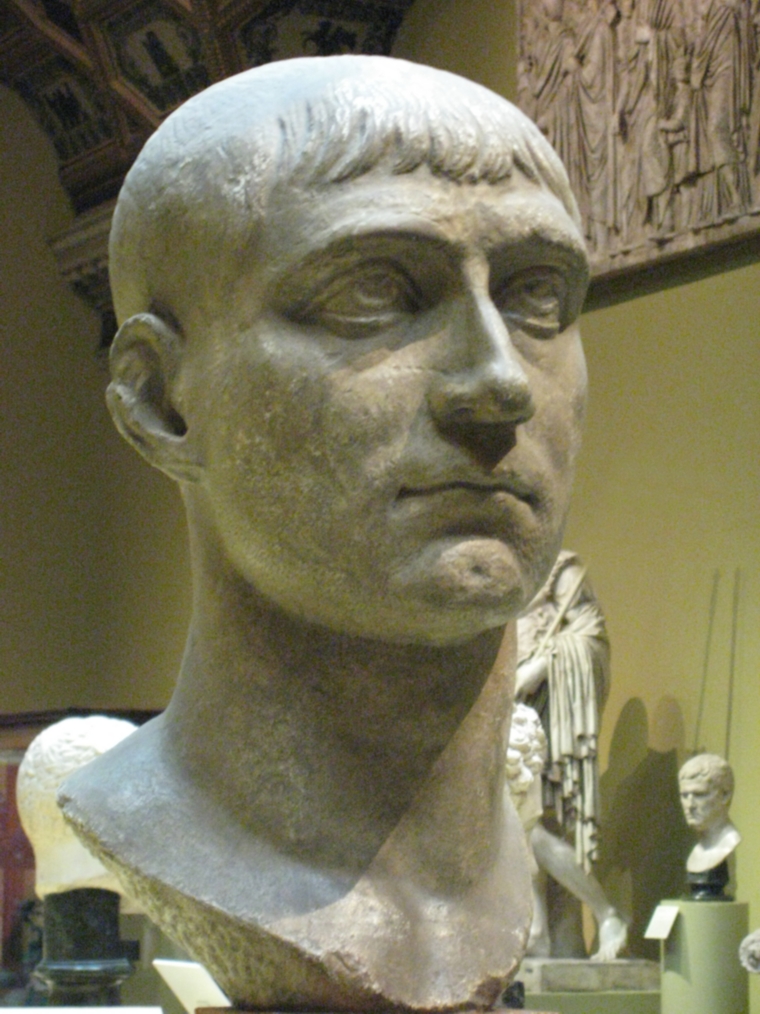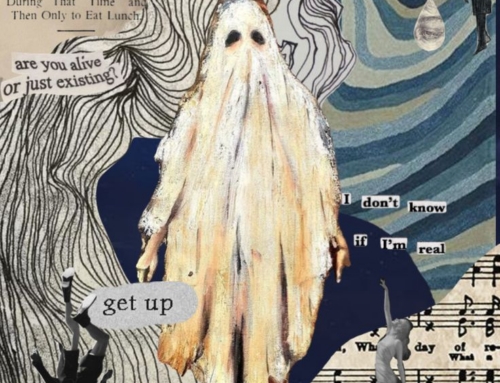Hilaire Belloc said “Every argument is a theological argument.” It’s another way of saying “Ideas matter and beliefs matter.”
With Boris’ big win in the UK and Donald Trump preparing to win huge next year in USA we should sit up and pay attention to what we are witnessing. In the democratic process we say “The people have spoken.” and they have spoken big time. REALLY big time, and what they are saying (even if they don’t know they are saying it) is more than simple political choices. They are making choices that are much deeper than that. They are expressing themselves about much deeper and larger issues than the choice of a politician or a political agenda.
To get where I’m going in this blog post I need to start somewhere else. In his recent book Return of the Strong Gods: Nationalism, Populism and the Future of the West Rusty Reno explains the rise of relativism in the West. I’ve reviewed the book here. The short version is that in the aftermath of two disastrous world wars, the powers that be decided that dogma was destructive and divisive. Reno shows how the philosophers, sociologists, economists, politicians, intellectuals and globalists all decided that for war to be avoided dogma would have to go. When I say “dogma” I don’t simply mean specific Christian beliefs. I mean the whole idea of dogma would have to go. To be dogmatic is to hold to a particular idea knowing that you are right, and if you are right the other guy is wrong and if the other guy is wrong he is not just wrong, he is dangerous and if he is dangerous he needs to be done away with. Thus war.
It’s a simple enough concept, and it was in the post war period, therefore that we saw the rise of relativism. Toleration became not only the highest virtue, it became the only virtue. Judgmentalism was not allowed. “It is prohibited to prohibit!” was the battle cry. “You have your truth. I have my truth.” and when regarding religion, “We’re all climbing the same mountain, simply by different paths.” You get the idea. What I didn’t see before reading Reno’s book, was how much this was a deliberate tactic by those who sincerely wanted to build a new world order without war.
The ideal, therefore is not to dogmatize, but to listen, to dialogue, to accompany, to meet others where they are and to accept them as we would wish to be accepted.
Now, all of this sounds very good up to a point. Who can disagree with the desire to avoid war? Who can disagree with the desire to get along with one another? Can you be against peace and justice? Hardly.
This post-war trend towards relativism combined with various other social forces. Increased global mobility brought the breakdown of the extended family and increased immigration and highly mobile populations. The invention and widespread use of artificial contraception and conception brought increased choice in the whole area of sexuality, childbearing, family life and sexual roles. This increased choice has led to wholesale confusion and bewilderment in the vital area of sexuality and family life. The rise of relativism coincided with and helped to cause the breakdown of organized religion. The rise of globalism challenged old national borders, cultures and customs.
What’s the result? We are now a human race totally adrift. We are a ship without an anchor, without a motor and not only without sails, but also without a crew or captain.
This fluid state of relativism where nobody believes anything solid and holds to anything secure is very dangerous. It might be all well and good for the intellectuals who think it all through, but the vast majority of people can’t live that way. They need something to cling to. They need something to believe in. They need a rock on which to stand and a hill to fight on.
Catholics have looked to their church to be that rock, that hiding place, that secure and solid hill to fight on. Alas, the language of relativism is now being spewed from the very highest voices in our church. The mealy mouthed leaders of our church who talk of nothing but dialogue, listening, accompanying and the need for a pastoral approach are basically selling us the same relativism that the world has to offer.
What will be the result? We are seeing the result manifested in our political system. The rise of Nationalism is the cry of ordinary people looking for security. They want a clear voice and a visible leader to follow. They want something solid in which to believe. They want clear moral values and clear statements of belief. They cannot live in a relativistic vacuum, and they are rejecting not just the leftists and anarchists. They are rejecting the relativistic philosophy behind those movements and behind the vast globalist movement of relativism.
Boris Johnson’s sweeping victory should not be dismissed. The fact that he, as a Tory, won over the working classes is just as significant as Donald Trump’s huge rallies filled with “deplorables.” These are ordinary people–crowds of ordinary people saying, “We don’t want relativism. We don’t want moral anarchy. We don’t want to live with the wash of a totally open ended open minded and open headed society. We want something solid. We want a clear voice. We want a leader.
What should be the response to this uprising of the people? On the one hand we sympathise with the cry for dogma, the call for clarity and the clear need to belong to a clan, a tribe and a group that knows who they are and what they are fighting for. On the other hand, with the decline in Christian belief and the weak voices from the Vatican and our other Christian leaders, the desire for that security can all too easily be attracted by not only nationalism, but a nationalistic leader who rallies everyone around in a new kind of fanaticism.
The danger of nationalism is that it becomes, in a religious and spiritual vacuum, an ideology that functions (as all ideologies do) like a false religion.
I believe we are living in very dangerous times. I acknowledge the need for dogma and clear beliefs, but the only dogma and clear beliefs that are both true and practical are those of the Christian faith. Having rejected them, the people will throw themselves at whatever other ideologies they think are true. Nationalism is simply one among many others. In Nationalism people turn the love of country into their new religion. There are plenty of other ideologies out there, but none quite so potent as Nationalism.
Why do I think we are headed for World War III? Because Nationalism, like all ideologies, is never satisfied. The ideologue (because he or she is following a false religion) will never be appeased. Ideologues need clear enemies, and once one enemy is defeated there is always another to be slain like the heads of Hydra.
Things at the moment seem fine. Trump’s economy is roaring. Boris is flying high. Nationalism seems friendly and patriotic, and the population, riding on a wave of victory, success and affluence are buoyant, confident and strong. That is always how it feels when an ideology is on the rise. The feeling is euphoric. It’s a high. It feels absolutely fantastic to be on top and to be riding the wave.
But what happens when the storm comes? What happens when there is a crisis of some kind? What happens when there is a financial collapse or a technological implosion? What happens when there is a plague, a natural disaster or an invasion that no one saw coming? What happens when things turn bad?
At that point the nationalists look for someone to blame. It doesn’t matter who it is. It doesn’t matter if they are to blame. The tribe must have their scapegoat. If there is no evidence–invade that other country anyway. The enemy must identified and defeated because the ideology lives on the lifeblood of the enemy.
Do I want a great catastrophe and a terrible war? Of course not. I long for the day when the people’s thirst for truth, certainty and security are found in a genuine faith in Jesus Christ. I long for a Catholic Church that has leaders who live and proclaim the certainties of the Christian gospel with compassion, joy, tolerance and all in the power of the Holy Spirit. What I loathe and fear is the Christian church tagging along and giving a blessing to any form of worldly ideology.
It will be very interesting to see how things develop. I would not be at all surprised to see a strong new alliance emerge in which Britain and the USA combine forces to stand against the forces of relativistic globalism, and therefore create a new kind of global empire. What if the nations of the British Commonwealth were to coalesce with the USA and her allies into a worldwide, united trading and military alliance?
We would have a new empire, and the people will love it. The Empire will bring them security, identity and certainty. It will promise them power, prosperity, protection and peace.
All will bow before the power of the Empire.
My question is who will be the Emperor and will you be on his side?







Father,
From the Greco-Roman era the Republics have eventually succumbed to the Emperor or Strongman to “protect” the republic. It happened in Rome, the Eastern Roman republic, Germany, France, England but during most of those eras there has been a strong “anti-state” option in the Church and the monastic movement. I acknowledge that a new Emperor may arise, but I see another threat. The administrative state run by ideologues with the same ideology in the US, England and western Europe. They are also in the rest of what was called the British Empire. They are aggressively trying to impose their pollical policies on their countries.
That is the empire that I fear! And I am afraid that the Church in Rome is in agreement with their agenda.
I would be very grateful if you can convincingly disprove my concern. But until then I will support the monastic houses that seem to be continuing the tradition of the Church.
God Bless and Merry Christmas.
Jeff
The nation state traditionally provided three securities to the populace; border security, cultural security and economic security. These three legs of the stool enable the nation state to stand. The religious heritage of a nation is part of that nation’s cultural security. Christian nations from Apostolic traditions understood historically that their soteriology was ultimately corporate and not merely private. After the enlightenment, Nietzsche and others observed the presumed death of God. The apparent slumber of the real God allows space for a number of false gods to temporarily take his place. Samuel Huntington observed a generation ago that future clashes would be between civilizations. The curious thing about the civilizations in question is that three of them are Christian. The Western, Orthodox and Sub-Saharan African civilizations are all at least nominally Christian although America, Russia and Africa each see Christ as a very different sort of figure. For the Orthodox civilization, which survived Communism, the re-embrace of their Christian heritage is an existential matter. Western Civilization rides on the fumes of its Christian past and merely awaits the next financial crisis to be reintroduced to reality. Yet Africa, humble Africa, faith there is a simpler matter. Kenya for example is a nation no bigger than a few American states and yet it has twice the Orthodox population of the United States, and 33% of the population (7.5 million souls) are Catholics. Africa, gives the Christian world men like Cardinal Robert Sarah. It is nothing but speculation on my part, but I sometimes wonder if the field is being allowed to lay fallow for the likes of a Pope Sarah or his ilk. People desire clarity and in its absence they will follow false flags and false idols like Pachamamma.